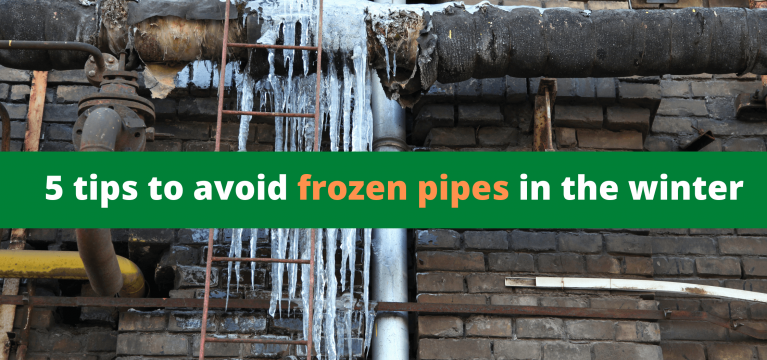As the mercury drops, your pipes can freeze. Freezing pipes can be dangerous in several ways. As water flows, pressure builds up and this can result in bursting. Burst pipes mean flooding, standing water damage that causes expensive, urgent repairs. Therefore, it is better to avoid frozen pipes in the first place without causing much damage later on.
Prevention is always better than the cure. So to avoid frozen pipes, you need to take a few preventive measures. Let’s read 5 tips so that you can keep your pipes from freezing.
1. Keep Your Garage Door Closed
The coldest part of a house is its garage because it has concrete floors and minimal insulation. Keeping the garage door closed when it’s cold outside is one of the best ways to avoid frozen pipes. However, this tip is valuable if you have water supply lines that go through your garage. In addition, keeping the garage door closed will also preserve the heat in your home thus reducing your energy bills.
On the other hand, you can choose to add a little more insulation to your garage to keep the space warmer in the winter. This helps in keeping your pipes from freezing and making your garage a more livable part of your home.
2. Keep a tap dripping
It is possible that the pipes can burst when water freezes and then expands. But if the water is running then there’s less possibility of freezing. When the weather is chilly outside, leave a cold water tap dripping. There is a common sign that can indicate your pipes are freezing. Check your water pressure. If you notice the water pressure dropping, chances are your pipes are starting to freeze.
3. Add insulation to outside walls of pipes
Insulate outside walls of your pipe as exterior walls can get much colder than inside walls. If you have plumbing in outside walls, add an extra layer of insulation to ensure that your pipes are safe and protected. You might notice moisture or mold on the interior wall surface, surface cracks or nail pops, or your walls can feel cool to the touch. If you feel so, consider reinsulating or using spray foam to add protection.
4. Disconnect hoses and protect outside spigots
When water freezes in a hose, pressure in the home’s pipes increases. This pressure can then expand and burst inside the home. To prevent this, you have to drain and disconnect all hoses as well as turn off the water to outside spigots during the winter. A pro-tip is to cap those spigots with faucet insulators.
5. Contact a Professional
Examine your pipes with professional plumbers especially when you’re winterizing your home. Sometimes we end up trying to winterize the house on our own. If your goal is to save money, contact a professional. Possible issues are likely to be overlooked by a beginner that a professional would not. So get in touch with a professional plumber to avoid costly repairs down the road.
Conclusion
Plumbing problems occur as the season changes. Therefore, it is a good idea to keep a professional plumber’s contact on hand. If you think your pipes need to be winterized, are frozen, or need repairs then contact theplumbing911. We are always there when you need us.













